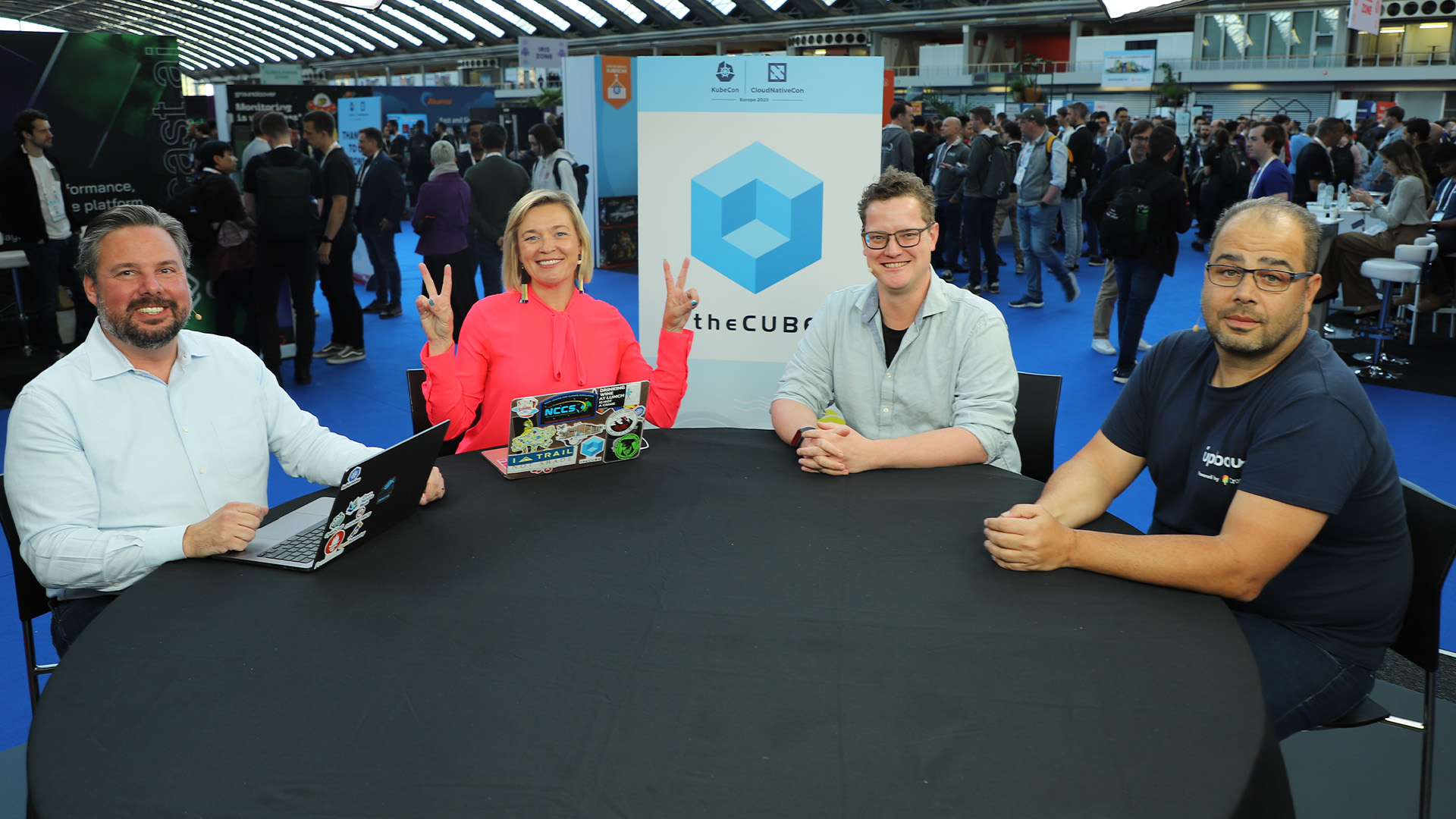 INFRA
INFRA
 INFRA
INFRA
 INFRA
INFRA
The evolution of Kubernetes and the rise of artificial intelligence were two major topics during day one of the KubeCon + CloudNativeCon event in Amsterdam, with many attendees discussing the intersection of the two.
“I think we’re barely scratching the surface on how AI intersects this cloud-native world,” said Bassam Tabbara (pictured, right), founder and chief executive officer of Upbound Inc. “It’s not yet clear how it’s going to intersect. We have a lot to learn in terms of what’s differentiated, what has actual value and what’s going to work.”
Tabbara spoke with industry analysts Savannah Peterson, Joep Piscaer and Rob Strechay at the KubeCon + CloudNativeCon Europe event, during an exclusive broadcast on theCUBE, SiliconANGLE Media’s livestreaming studio. They discussed emerging AI technology, the importance of private data sets and the ethical concerns surrounding AI. (* Disclosure below.)
Five years ago, containerization and microservices were the dominant topics in tech, with Kubernetes serving as the main tool for managing them. Now, Kubernetes has evolved beyond just scheduling and computing to include cost management and policy building, among other things, according to Tabbara. As a result, the discussion has expanded to encompass the whole ecosystem rather than just containers.
“It’s now no longer just that one single thing. It’s a whole ecosystem, and it has grown way beyond Kubernetes,” Piscaer said. “That’s one of my key takeaways for this event.”
The buzz around AI and machine learning is also growing louder, with chatbots using AI and ML becoming more popular. But Bassam warns that “we’re pushing the boundaries on what’s ethical and what’s not at this point.”
Many companies are using private data to train models, which can be more valuable than the result of training itself. There are concerns about privacy and security risks associated with using chatbots and AI in general, with many companies failing to understand the potential risks.
Despite these concerns, the integration of AI and chatbots into the tech ecosystem is inevitable. The question is how companies will differentiate themselves in this new landscape. The winners will be those that can use private data sets to create value and sell it to customers. However, it is crucial that companies prioritize ethics and privacy in the process, according to Bassam.
“Would I have it defined as security policy for my cloud and then walk away and just trust it? Absolutely not. I have to be smarter than it to review what it came up with before I can trust it,” he said. “But there is utility in having it help; there’s utility in having it assist a human in coming up with stuff. But you still have to be smarter than it because you are liable.”
Overall, the tech industry is constantly evolving, with new tools and techniques emerging all the time. The rise of Kubernetes and the integration of AI into tech ecosystems are just two examples of this ongoing evolution. As Bassam noted, the key is to stay ahead of the curve and understand how these changes will impact the industry in the long term.
Here’s the complete video interview, part of SiliconANGLE’s and theCUBE’s coverage of the KubeCon + CloudNativeCon Europe event:
(* Disclosure: This is an unsponsored editorial segment. However, theCUBE is a paid media partner for KubeCon + CloudNativeCon. Neither Red Hat Inc. nor other sponsors of theCUBE’s event coverage have editorial control over content on theCUBE or SiliconANGLE.)
Support our mission to keep content open and free by engaging with theCUBE community. Join theCUBE’s Alumni Trust Network, where technology leaders connect, share intelligence and create opportunities.
Founded by tech visionaries John Furrier and Dave Vellante, SiliconANGLE Media has built a dynamic ecosystem of industry-leading digital media brands that reach 15+ million elite tech professionals. Our new proprietary theCUBE AI Video Cloud is breaking ground in audience interaction, leveraging theCUBEai.com neural network to help technology companies make data-driven decisions and stay at the forefront of industry conversations.